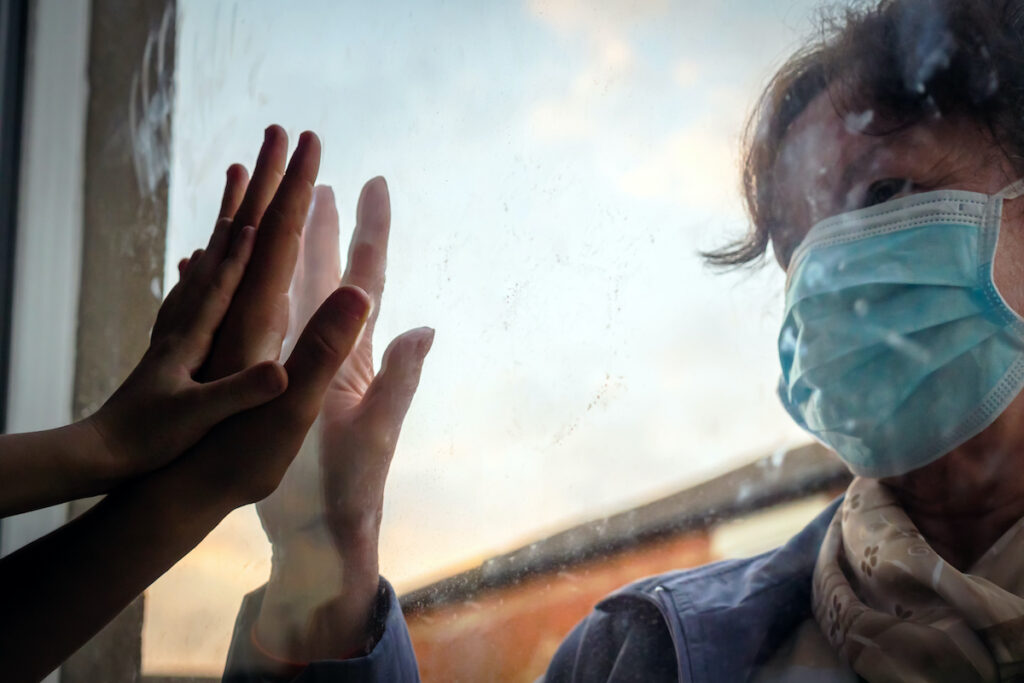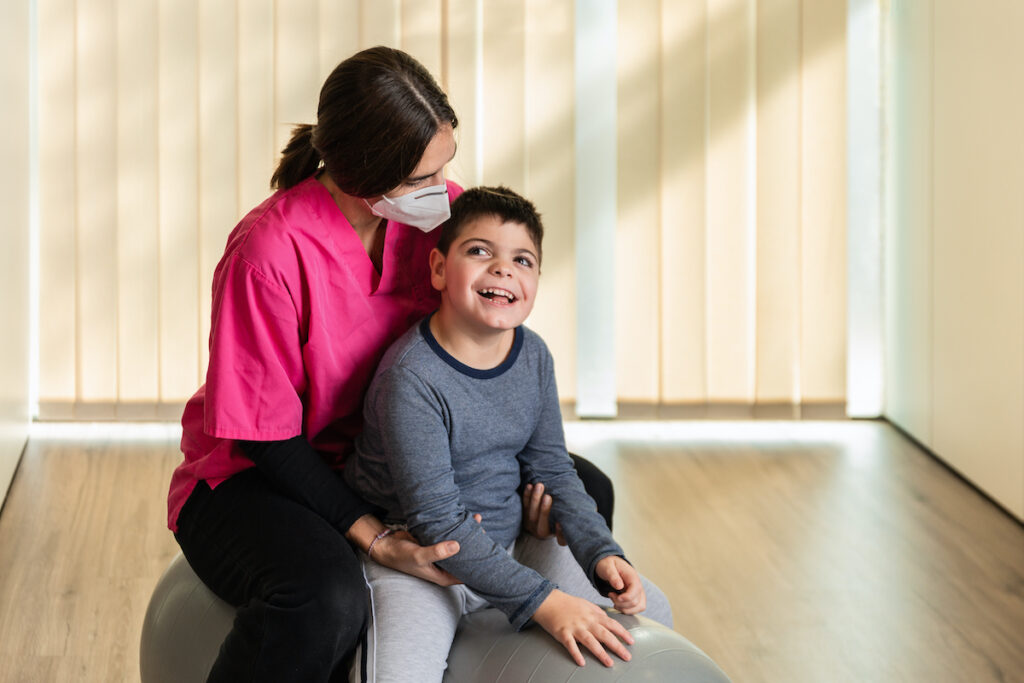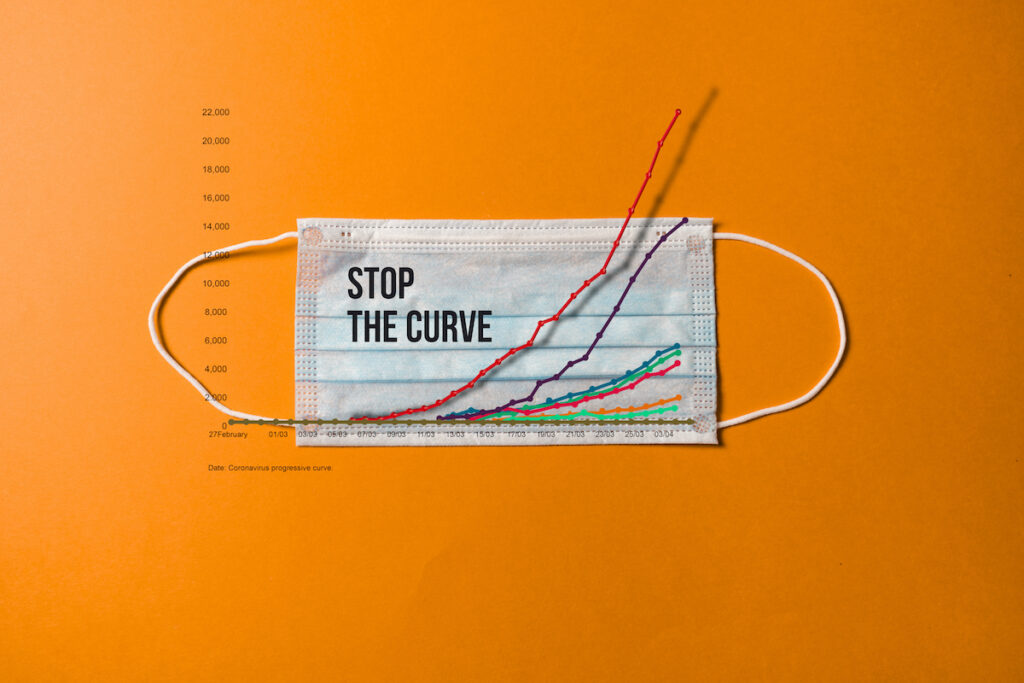
Editorial note: Our blog today covers a research group task conducted by a team of UCL MSc students as part of the ‘Intellectual and Developmental Disabilities’ module, who reviewed and summarised the empirical evidence on the impacts of COVID on people with intellectual disabilities (ID), their carers and families. This work was carried out under the supervision of Dr Totsika (@VasoTotsika) and Dr Ali (@AfiaAli27690449). This blog is not a systematic review, but a literature review of all empirical evidence on this topic during the coronavirus pandemic. The names of the students who contributed to this blog are listed at the end.
Since 2020, the coronavirus (COVID-19) pandemic has been dominating our lives. The pandemic has had an unprecedented impact on life around the world, and its consequences are noticed by everyone. The vulnerability of certain groups, such as the elderly, ethnic minorities and the homeless, has been highlighted (Kirby, 2020; Platt & Warwick, 2020).
Less apparent though, the coronavirus pandemic poses a great risk to individuals with intellectual and developmental disabilities (IDD), especially those in long-term care (World Health Organization, 2020). Individuals with IDD often have underlying health conditions, which may make them more susceptible to the pandemic (Navas et al., 2021). Moreover, they may have a limited understanding of information on preventative measures, and restrictions on normal activities are likely to cause stress (Courtenay & Perera, 2020). The pandemic has also had a negative impact on both family and professional caregivers.
People with IDD experienced many health and social inequalities before COVID-19. Given the likely adverse impact of COVID-19 on their health and well-being, and the increasing number of studies published, it is crucial to bring together the research evidence to date.

The COVID-19 pandemic has impacted all groups in society, but people with intellectual and neurodevelopmental disabilities, their families and professionals supporting them are especially vulnerable.
Methods
We conducted a focused literature review to identify studies (up to April 2021) on the impact of COVID-19 on adults with IDD, children with IDD, families, carers and professionals. We summarise here what methods studies used.
The most common were cross-sectional online surveys or qualitative interviews. Some studies did not make a clear distinction between neurodevelopmental disabilities, intellectual disability, and autism. This meant that impacts specific to these different groups were indistinguishable. Most studies relied on small, convenience samples. The research was primarily conducted in the US or Western Europe, limiting generalisability. Data were mostly collected at the beginning of the pandemic, so could not capture how the situation evolved over time. Most studies focused on adults; research evidence on children with IDD, families and/or carers is limited.
There are however some notable exceptions, e.g. Oomen et al. (2021) recruited a large sample of 1,044 adults across three European countries to examine the psychological impact of COVID-19 on autistic adults. The design included a comparison group of non-autistic adults, and collected quantitative and qualitative data.
Results
COVID-19 infection and health
Children and adults with IDD presented with a higher risk for COVID-19 infection, hospitalisation, ICU stay and death compared to the general population (Hüls et al., 2021; Gleason et al., 2021). Professionals experienced significant worry about contracting and passing on the virus and felt responsible for the health of their patients (Desroches et al., 2021; Embregts et al., 2020; McMahon et al., 2020).
Mental health
Adults with autism spectrum disorder (ASD) experienced higher levels of anxiety and depression (Lake et al., 2021). Children’s mental wellbeing was significantly worse, with increased sedentary, anxious and aggressive behaviour (Theis et al., 2021). Moreover, parental stress was far greater (Ueda et al., 2021) due to restrictions, changes in routines, risk of placement breakdown and worries about their child’s health vulnerabilities. This led to increased levels of depression and anxiety for families than pre-pandemic (Willner et al., 2020).
Services and support
Stress for individuals and their families was compounded by reduced access to professional services, as COVID-19 amplified barriers that were already present (Lake et al., 2021), such as reduced day care spaces and staff shortages (Tromans et al., 2020). With services and schools closed, caregivers and families struggled to provide the same level of support whilst limiting COVID exposure (Aishworiya & Kang, 2020; Neece et al., 2020), contributing to greater anxiety for families (Asbury et al., 2020).
Benefits
Many adults with ASD felt relieved at reduced social interaction as there was less need for camouflaging (Lugo-Marín et al., 2021) and fewer social stressors (Oomen et al., 2021). Many adults with IDD increased their levels of physical activity (Lake et al., 2021) and some children found social distancing rules calming (Asbury et al., 2020). Families were also able to spend more quality time together (Neece et al., 2020). Professionals reported stronger collaboration between services and feelings of connectedness between staff (Embregts et al., 2020).

COVID-19 has been detrimental to the mental and physical wellbeing of children and adults with intellectual and developmental disabilities and their families. Professionals have had high levels of burnout and anxiety, but despite this, every group has found something positive in the pandemic.
Conclusions
The current available evidence, predominantly from the start of the COVID-19 pandemic, highlights a chiefly negative impact on physical health outcomes, mental health problems and access to services.
While there is less evidence about the impact on professionals and paid carers, they too were struggling emotionally with additional interpersonal, professional and cognitive challenges.
Some of the positive impacts most often identified related to mental health and well-being for people with IDD and their families, as well as service changes (notably online support, and better communication between services).

Some people with intellectual or developmental disabilities have positive experiences of online support and relief from social stressors during the COVID-19 pandemic.
Strengths and limitations
The studies included in our literature review were conducted promptly at the beginning of the pandemic, providing a fairly comprehensive picture for this period of the pandemic. The majority of the studies largely used qualitative methodologies, which are helpful for gaining insight into the perspectives of individuals with IDD.
However…
- Many sampling design limitations limit the generalisability of findings: For most of the studies described here, the population samples were not representative, and they were not diverse – the studies were from either North America or Europe, so we cannot consider how COVID-19 might have impacted people with IDD in other countries or cultural contexts.
- Most evidence refers only to the first period of the pandemic: Many studies used cross-sectional designs. A longitudinal perspective would be more beneficial in seeing how COVID-19 impacts changed, as the pandemic evolved.
- Findings are not always specific to IDD groups: Many studies did not make a clear distinction between various groups of participants with developmental disabilities. The limited evidence we have seems to suggest that the COVID-19 lockdown may have had some benefits for autistic people, suggesting any impacts (positive or negative) may not apply uniformly to all developmental disabilities.
- Lack of control for pre-pandemic data: People with intellectual or developmental disabilities were already facing inequalities before the pandemic and the current body of evidence does not take this into account. Thus, it is hard to know whether there is an increase in inequality due to COVID-19, or if we are seeing an extension of the inequalities seen pre-pandemic. It is possible that disparate COVID-19 outcomes may reflect the pre-existing health disparities faced by people with IDD at baseline, prior to the pandemic.

Much of the research conducted on how COVID-19 impacts people with intellectual and developmental disorders was cross-sectional, which means we can’t see the effects of COVID-19 over time.
Implications for practice
The findings suggest that people with IDD would benefit from having access to more accessible information regarding COVID-19. As the pandemic has increased the number of mental health difficulties experienced by this population, interventions should be considered. However, more research is needed on what kind of interventions would be most appropriate and accessible.
Future research should include more diverse samples and focus on different levels of impairment. Much of the research evidence to date has focused on ASD. Less is known about people with other neurodevelopmental conditions and more severe disabilities. Longitudinal studies are needed to see how the impact of COVID-19 changed following the first period of the pandemic.

We need more research to understand what happened to people with IDD and their carers after the first period of the pandemic. We need to plan our services to respond to the increased demands for more accessible information on COVID-19 as the pandemic unfolds, and mental health support to people, their families and their carers.
Contributors
Thanks to the UCL Mental Health MSc students who wrote this blog: Yolanda Morley, Samihah Islam, Magdalena Tomaskova, Tala Koren, Sonya Rudra, and to all the UCL Mental Health MSc students who contributed to this summary of evidence: Rabia Azad, Annabelle Durrad (@AnnabelleDurr4d), Roleah Jacinto, Eirini Lamprogiannaki, Anna Olsen, Emilia Severs, Roseline Vincent, Lucie Chenain, Israa Elbashir, Chengcheng Ke, Shania Lorenz (@MsShania2), Alice Palmer, Aggelos Stamos (@stamos_angelos), Jennifer Watson, Maria Condon, Yung-Chia Hsueh, Insia Khan, Natasha Melinek, Lisa Quigley, Jessica Steward, Hannah Williams, Tiegan Delim, Qamar Hussain, Garrett Kidd (@Garrettkidd_), Jiping Mo, Aisha Rafiq, Amanda Timmerman.
UCL MSc in Mental Health Studies
This blog has been written by a group of students on the Clinical Mental Health Sciences MSc at University College London. A full list of blogs by UCL MSc students from can be found here, and you can follow the Mental Health Studies MSc team on Twitter.
We regularly publish blogs written by individual students or groups of students studying at universities that subscribe to the National Elf Service. Contact us if you’d like to find out more about how this could work for your university.
Statement of interests
None.
Links
Primary papers
Aishworiya, R., Kang, Y.Q. (2020). Including children with developmental disabilities in the equation during this COVID-19 pandemic. Journal of Autism and Developmental Disorders.
Asbury, K., Fox, L., Deniz, E. Code, A. & Toseeb, U. (2020). How is COVID-19 affecting the mental health of children with special educational needs and disabilities and their families? Journal of Autism and Developmental Disorders.
Desroches, M. L., Ailey, S., Fisher, K., & Stych, J. (2021). Impact of COVID-19: Nursing challenges to meeting the care needs of people with developmental disabilities. Disability and health journal, 14(1), 101015.
Embregts, P., van Oorsouw, W., & Nijs, S. (2020). Impact of infection outbreak on long-term care staff: a rapid review on psychological well-being. Journal of Long-Term Care, 2020, 70-79.
Gleason, J., Ross, W., Fossi, A., Blonsky, H., Tobias, J. & Stephens, M. (2021). The devastating impact of COVID-19 on individuals with intellectual disabilities in the United States. NEJM Catalyst Innovations in Care Delivery, 2(2).
Hüls, A., Costa, A.C.S, Dierssen, M., Baksh, R.A., Bargagna, S., Baumer, N.T. et al. (2021) Medical vulnerability of individuals with Down Syndrome to sever COVID-19 – data from the Trisomy 21 Society and the UK ISARIC4 survey. EClinicalMedicine, 33, 100769.
Lake, J. K., Jachyra, P., Volpe, T., Lunsky, Y., Magnacca, C., Marcinkiewicz, A., & Hamdani, Y. (2021). The Wellbeing and Mental Health Care Experiences of Adults with Intellectual and Developmental Disabilities during COVID-19. Journal of Mental Health Research in Intellectual Disabilities, 1-16.
Lugo-Marín, J., Gisbert-Gustemps, L., Setien-Ramos, I., Español-Martín, G., Ibañez-Jimenez, P., Forner-Puntonet, M., Arteaga-Henríquez, G., Soriano-Día, A., Duque-Yemail, J. D., & Ramos-Quiroga, J. A. (2021). COVID-19 pandemic effects in people with Autism Spectrum Disorder and their caregivers: Evaluation of social distancing and lockdown impact on mental health and general status. Research in Autism Spectrum Disorders, 83, 101757.
Lund, E. M. (2020). Interpersonal violence against people with disabilities: Additional concerns and considerations in the COVID-19 pandemic. Rehabilitation psychology, 65(3), 199.
McMahon, M., Hatton, C., Stansfield, J., & Cockayne, G. (2020). An audit of the well-being of staff working in intellectual disability settings in Ireland during the COVID-19 pandemic. Tizard Learning Disability Review.
Neece, C., McIntyre, L.L. & Fenning, R. (2020). Examining the impact of COVID-19 in ethnically diverse families with young children with intellectual and developmental disabilities. Journal of Intellectual Disability Research, 64(10), 739-749.
Oomen, D., Nijhof, A. D., & Wiersema, J. R. (2021). The psychological impact of the COVID-19 pandemic on adults with autism: a survey study across three countries. Molecular Autism, 12(1), 1-21.
Theis, N., Campbell, N., De Leeuw, J., Owen, M., & Schenke, K. C. (2021). The effects of COVID-19 restrictions on physical activity and mental health of children and young adults with physical and/or intellectual disabilities. Disability and Health Journal, 101064.
Tromans, S., Kinney, M., Chester, V., Alexander, R., Roy, A., Sander, J. W., Dudson, H., & Shankar, R. (2020). Priority concerns for people with intellectual and developmental disabilities during the COVID-19 pandemic. BJPsych open, 6(6).
Turk, M. A., Landes, S. D., Formica, M. K., & Goss, K. D. (2020). Intellectual and developmental disability and COVID-19 case-fatality trends: TriNetX analysis. Disability and health journal, 13(3), 100942.
Ueda, R., Okada, T., Kita, Y., Ozawa, Y., Inoue, H., Shioda, M., … & Ozawa, H. (2021). The quality of life of children with neurodevelopmental disorders and their parents during the Coronavirus disease 19 emergency in Japan. Scientific reports, 11, 1-18.
Willner, P., Rose, J., Stenfert Kroese, B., Murphy, G.H., Langdon, P.E., Clifford, C., Hutchings, H., Watkins, A., Hiles, S. & Cooper, V. (2020). Effect of the COVID-19 pandemic on the mental health of carers of people with intellectual disabilities. Journal of Applied Research in Intellectual Disabilities, 33(6), 1523-1533.
Other references
Courtenay, K., & Perera, B. (2020). COVID-19 and people with intellectual disability: impacts of a pandemic. Irish Journal of Psychological Medicine, 37(3), 231-236. https://doi.org/10.1017/ipm.2020.45
Kirby, T. (2020). Efforts Escalate to Protect Homeless People from COVID-19 in the UK. The Lancet Respiratory Medicine, 8(5), 447-449. doi: 10.1016/S2213-2600(20)30160-0
Navas, P., Amor, A. M., Crespo, M., Wolowiec, Z. & Verdugo, A. (2021). Supports for people with intellectual and developmental disabilities during the COVID-19 pandemic from their own perspective. Research in Developmental Disability, 108, 1-11. doi: 10.1016/j.ridd.2020.103813
Platt, L. & Warwick, R. (2020). Are some ethnic groups more vulnerable to COVID-19 than others? The Institute of Fiscal Studies. Last accessed: 20 June 2021.
World Health Organization (2020). Risk communication and community engagement readiness and response to coronavirus disease (COVID‐19): Interim guidance. Last accessed: 20 June 2021.
Photo credits
- Photo by Nathan Anderson on Unsplash
